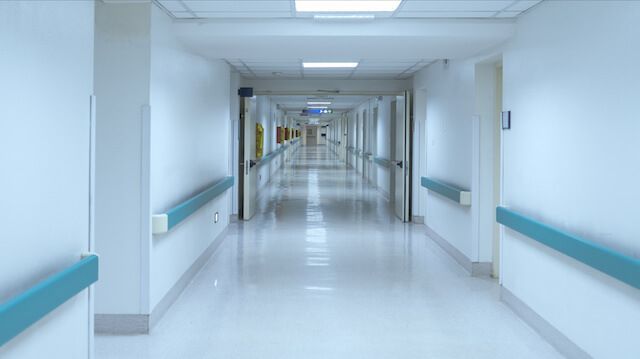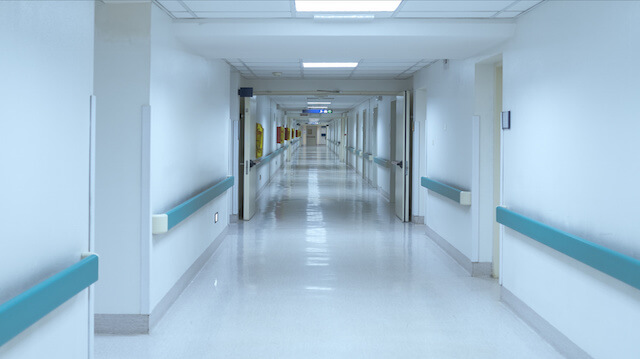
According to the Centers for Disease Control and Prevention (CDC), approximately eight percent of the population will have at least one overnight stay in a hospital per year. People get sick, injured and they need to visit their doctor or take an unexpected trip to the Emergency Room. However, rushing off to the hospital could actually make you more ill and may even kill you. Antibiotic-resistant superbugs flourish in a hospital environment and infectious bacteria can cause you more health problems on top of an already troublesome sickness. Hospital acquired infections like MRSA and Clostridium difficile may cause a higher body count combined than cancer. Here are our top-three reasons that will make you rethink your next hospital visit, or at least take extra precautions.
1. MRSA
If you enter the swinging doors of a hospital with any minor injury or illness, you may be at risk for contracting MRSA. Methicillin-resistant Staphylococcus aureus (MRSA) is a serious infection caused by a staph bacteria that could lead to fatal implications. According to the CDC, there are over 80,000 MRSA cases per year. Over 11,000 of those cases result in death.
Getting sick or contracting an infection during or after a hospital visit is not so uncommon these days. We all get sick from time to time, but you may want to rethink rushing to the doctor’s office or Emergency Room. At the top of the CDC’s list for ways you can contract MRSA is visiting a hospital. Hospital-acquired infections are serious and may lead to further complications like pneumonia. The CDC found that 1.7 million people acquire an infection from visiting a hospital or local clinic.
A 2010 study published in the Scandinavian Journal of Caring Sciences discusses patients reactions to hospital-acquired infections like MRSA. The study found, “The patients felt violated for having contracted MRSA at the hospital and the isolation was described as traumatic.” This is a perfect reason to avoid hospitals if possible — you may go in sick, but come out even worse.
2. Clostridium difficile
 Another hospital-acquired superbug you may be exposed to during your next hospital visit is Clostridium difficile or C. diff. Like MRSA, this potent little infection has a track record of being antibiotic resistant. C. diff attacks the digestive system. In 2011, C. diff was so severe that 29,000 people died within 30 days of being infected after a hospital visit.
Another hospital-acquired superbug you may be exposed to during your next hospital visit is Clostridium difficile or C. diff. Like MRSA, this potent little infection has a track record of being antibiotic resistant. C. diff attacks the digestive system. In 2011, C. diff was so severe that 29,000 people died within 30 days of being infected after a hospital visit.
The symptoms of C. diff include extreme diarrhea, over 10 times per day, dehydration, fever and severe abdominal pain. This unpleasant infection is not well known. Many health-care professionals only discuss MRSA as the most serious hospital-acquired infection. However, C. diff is becoming far more prevalent in hospitals nationwide. A 2003 study from the CDC found, “In one hospital, 30% of adults who developed health-care-associated diarrhea were positive for C.difficile.” Next time you are sitting in a hospital, look around and know that three out of ten people in the waiting room may contract C. diff.
3. Hospital accidents
If it’s not enough to be frightened of the various infectious superbugs lurking in the halls and rooms of a hospital, accidents cause more deaths and injury than any infection. The truth behind hospital accidents finally came out a few years ago, and the statistics are cause for concern.
According to recent data, hospital accidents are in the top five causes of death in the United States. The data, published in the Journal of Patient Safety (2013) suggests, “The true number of premature deaths associated with preventable harm to patients was estimated at more than 400,000 per year.” These figures may make you want to reevaluate your choices for care when you’re ill.
How does your closest hospital stack up? It is essential to know what you’re up against in case you have an illness or injury that requires a hospital visit. There are plenty of websites dedicated to patient information and hospital ratings. You may be surprised at what you find! Don’t blindly trust the appearance of safety and cleanliness at a hospital. Know what’s out there and how to avoid it. This knowledge will help you to stay healthy for many years to come.
— Stephen Seifert
Stephen Seifert is a writer, professor, adventurer and a health & fitness guru. His flare for travel and outdoor adventure allows him to enjoy culture and traditions different than his own. A healthy diet, routine fitness and constant mental development is the cornerstone to Stephen’s life.
Sources:
http://onlinelibrary.wiley.com/doi/10.1111/j.1471-6712.2009.00692.x/abstract
http://www.mayoclinic.org/diseases-conditions/mrsa/basics/definition/con-20024479
http://www.cdc.gov/HAI/organisms/cdiff/Cdiff_excerpt.html
http://www.cdc.gov/HAI/organisms/cdiff/Cdiff_infect.html
http://journals.lww.com/journalpatientsafety/Fulltext/2013/09000/A_New,_Evidence_based_Estimate_of_Patient_Harms.2.aspx
http://europepmc.org/abstract/med/9407261
http://www.cdc.gov/nchs/fastats/leading-causes-of-death.htm
http://www.hospitalsafetyscore.org

